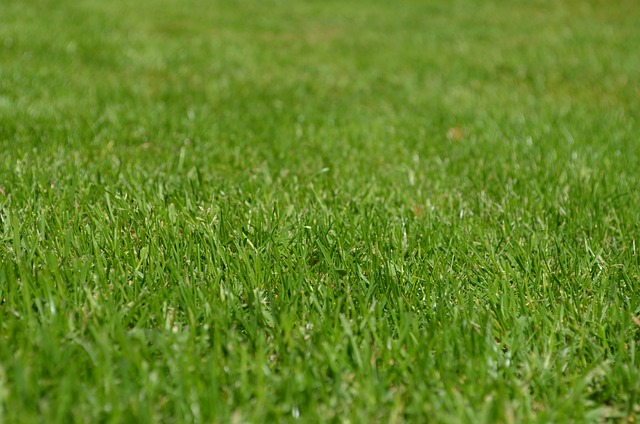Yard waste removal and recycling programs are essential for reducing landfill usage, mitigating greenhouse gas emissions like methane, and promoting sustainable community practices. These initiatives involve composting organic materials to produce humus that enriches soil and aids plant growth, thereby reinforcing ecosystem health. By guiding residents through educational outreach on the environmental benefits of composting and the role of yard waste removal in sustaining ecological balance, these programs become more effective. Targeted education, workshops, and community initiatives are crucial for maximizing the positive impact of these practices and encouraging a culture of environmental stewardship. Yard waste removal and recycling thus serve as practical and responsible solutions to manage organic waste, aligning with broader sustainability goals and contributing positively to the health of our planet. Home composting is also an eco-friendly option for managing yard waste, allowing homeowners to enrich their gardens while reducing their environmental impact. Community engagement and education are key to advancing these initiatives, ensuring that residents understand the importance of proper yard waste management and the role it plays in conserving resources and supporting biodiversity. Through these programs, communities can significantly lessen their environmental footprint and benefit from sustainable, cost-effective yard waste solutions that foster a culture of environmental stewardship.
Composting and recycling yard waste play a pivotal role in sustaining environmental health. This article delves into the significance of effective yard waste management through education, highlighting its impact on ecosystems and the community-driven approaches facilitated by municipal programs. We explore DIY composting options for homeowners to reduce landfill contributions and innovative recycling methods for managing organic matter. By understanding yard waste removal and recycling processes, readers can make informed choices to positively impact their local environment and contribute to a greener planet. Join us as we uncover the best practices in yard waste management that promote sustainability and environmental stewardship.
- Understanding Yard Waste and Its Environmental Impact
- The Role of Composting in Organic Yard Waste Management
- Municipal Yard Waste Removal Programs: A Community-Driven Approach
- DIY Composting Solutions for Homeowners
- Recycling Yard Waste: Innovative Methods and Best Practices
Understanding Yard Waste and Its Environmental Impact

Yard waste, encompassing organic materials like leaves, grass clippings, branches, and garden trimmings, represents a significant component of community waste streams. The decomposition of this material in landfills generates methane, a potent greenhouse gas that contributes to climate change. By contrast, composting yard waste not only reduces the environmental impact associated with its disposal but also transforms it into nutrient-rich humus that can be returned to the soil, thereby supporting plant growth and promoting healthy ecosystems. Yard Waste Removal and Recycling programs are pivotal in facilitating this process, offering residents a structured approach to managing their yard waste responsibly. These programs divert organic matter from landfills, mitigate greenhouse gas emissions, and foster sustainable practices within communities. Through education initiatives, individuals can learn about the environmental benefits of composting and the importance of Yard Waste Removal and Recycling in maintaining ecological balance, thereby contributing to a greener planet. It’s imperative that these educational efforts are comprehensive, reaching a wide audience to maximize the positive effects on the environment.
The Role of Composting in Organic Yard Waste Management

Yard waste, a significant component of municipal solid waste streams, poses both environmental and practical challenges if not managed effectively. Composting plays a pivotal role in mitigating these issues by transforming organic yard waste into nutrient-rich soil amendments. This process not only diverts waste from landfills but also contributes to the enrichment of soils, reducing the need for chemical fertilizers and promoting sustainable land management practices. Communities that implement composting programs can significantly reduce the volume of organic matter sent to landfills, which in turn decreases methane emissions—a potent greenhouse gas. Yard Waste Removal and Recycling efforts are enhanced through educational initiatives that teach residents how to effectively compost, including the selection of appropriate composting containers, understanding the balance between green and brown materials, and recognizing the conditions necessary for successful decomposition. Such education empowers homeowners to participate actively in these programs, leading to a more sustainable environment and efficient use of resources.
Furthermore, the integration of yard waste recycling into broader environmental educational curricula can foster a culture of conservation and stewardship. By highlighting the benefits of composting, such as soil health improvement, reduction in water usage, and support for local biodiversity, these programs can inspire residents to take collective action towards sustainability. Yard Waste Removal and Recycling are not only practical solutions but also embody a broader commitment to environmental responsibility. Through workshops, community composting initiatives, and accessible information on best practices, communities can effectively manage their yard waste and contribute positively to the health of local ecosystems. The education surrounding these practices is crucial for long-term sustainability and should be a cornerstone of any comprehensive waste management strategy.
Municipal Yard Waste Removal Programs: A Community-Driven Approach

Municipal yard waste removal programs represent a collaborative effort between local governments, waste management companies, and residents to efficiently manage organic waste generated from gardening, landscaping, and other outdoor activities. These initiatives are tailored to collect leaves, grass clippings, branches, and other natural materials, diverting them from landfills and transforming them into valuable compost or mulch. The programs not only contribute to environmental sustainability by reducing methane emissions that occur when organic matter decomposes in anaerobic conditions but also enrich the soil with nutrients, thereby promoting healthier plant growth and contributing to the overall ecological balance of the community.
Participants in these programs often receive clear guidelines on acceptable yard waste materials and collection schedules, ensuring a smooth process throughout the year. Additionally, educational components are integrated into the programs to raise awareness about the importance of composting and recycling yard waste. These educational efforts aim to empower residents with knowledge on how to effectively manage their yard waste, thereby fostering a culture of sustainability and environmental stewardship within the community. Through these community-driven initiatives, municipal yard waste removal and recycling programs exemplify a practical approach to waste management that benefits both the environment and the local population.
DIY Composting Solutions for Homeowners

Home composting offers a sustainable and cost-effective solution for managing yard waste, which traditionally has relied on removal and recycling services. By engaging in DIY composting, homeowners can significantly reduce their environmental footprint while enriching their gardens with nutrient-dense organic matter. The process begins with selecting an appropriate composting system that suits the space and needs of the household. Whether it’s a traditional heap, a tumbler for ease of rotation, or a specialized container designed to aerate the compost, these systems can be tailored to manage everything from kitchen scraps to lawn clippings. A key aspect of successful composting is understanding the balance between ‘greens’ and ‘browns’; the former are nitrogen-rich materials like fruit and vegetable peels and coffee grounds, while the latter are carbon-rich materials such as dried leaves, straw, or shredded paper. Regularly monitoring moisture levels and ensuring adequate aeration will further enhance the decomposition process. Homeowners who prioritize yard waste removal and recycling through composting not only contribute to soil health but also play a vital role in waste reduction and sustainability efforts within their communities. It’s a practical, hands-on approach that transforms organic waste into valuable resources, making it a smart choice for those looking to make a positive environmental impact.
Recycling Yard Waste: Innovative Methods and Best Practices

Community awareness and engagement in yard waste removal and recycling are pivotal for sustainable environmental management. Innovative methods in this sector focus on transforming organic matter from gardens, parks, and landscapes into valuable resources rather than waste. Effective yard waste recycling programs not only reduce the volume of waste sent to landfills but also contribute to the creation of high-quality compost, which can then be used to enrich soils, reduce the need for chemical fertilizers, and support local agriculture. Municipalities and organizations are increasingly adopting best practices that include chipping, mulching, and composting yard waste to facilitate its reuse. These practices not only conserve natural resources but also promote biodiversity by preserving habitats for various species. Educational initiatives are crucial in teaching residents about the environmental benefits of proper yard waste removal and recycling, as well as the step-by-step process of separating organic materials from other types of waste. By fostering a culture of environmental responsibility, these programs can significantly mitigate the environmental impact of yard waste while providing communities with sustainable and cost-effective solutions for managing their green spaces.
Effective yard waste management through composting and recycling not only enriches soil health but also significantly reduces environmental footprints. This article has delved into the nuances of understanding yard waste’s impact, highlighting the pivotal role of composting in managing organic materials. It has explored innovative community-driven yard waste removal programs and offered practical DIY composting solutions for homeowners. Furthermore, the examination of recycling methods and best practices for yard waste underscores the importance of these sustainable practices in contributing to a greener future. By adopting and promoting yard waste removal and recycling initiatives, communities can make strides in environmental conservation. Homeowners and municipalities alike have the opportunity to make meaningful contributions through informed action, ensuring that yard waste serves as a resource rather than waste.
